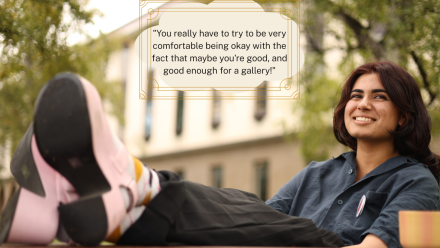Ignorance can be bliss
Life without ignorance would be boring. Imagine running out of new things to experience, learn or discover.
In the new edition of ANU Reporter, PROFESSOR MICHAEL SMITHSON, FASSA, looks at the role of ignorance in everyday life.
We usually think of ignorance as a bad thing. But it can be preferable not to know some things.
There are also many things we may never want to know, or that we may want others never to know. Imposing ignorance on ourselves and each other can be legitimate.
In some competitive sports, politics or warfare, deception is expected and is the norm.
Ignorance even can be a virtue. Those of us who respect each other's privacy are being virtuously ignorant.
Polite and civil people impose ignorance on one another through tact, evasion and even lies. They facilitate harmonious social relations by avoiding embarrassing or antagonising each other.
An easy place to begin thinking about the topic of ignorance is all the uses we have for temporary ignorance. Much of our entertainment depends on it. Imagine knowing in advance the endings of all the movies you'll ever see.
Life without ignorance would be boring. Imagine running out of new things to experience, learn or discover.
Every culture has taboos, which include topics or domains into which inquiry is forbidden and, therefore, ignorance of those topics is virtuous.
I've been researching this topic for 30 years but I have never had an opportunity to offer a course in it. The main reason for this is that a course on ignorance has no natural 'home'. It doesn't belong to any particular discipline. Instead, it sprawls across disciplines.
Every discipline with a research tradition, such as physics, history or mathematics, has its own methods for replacing ignorance with knowledge. They also have declarations regarding the kinds of unknowns those methods can deal with and the kind they cannot.
Download our free ANU Reporter app to continue reading Smithson's answers.
Each new edition will automatically download to your Newsstand.
Don't have a tablet or an Android phone?
Subscribe to receive the next print edition of ANU Reporter.


